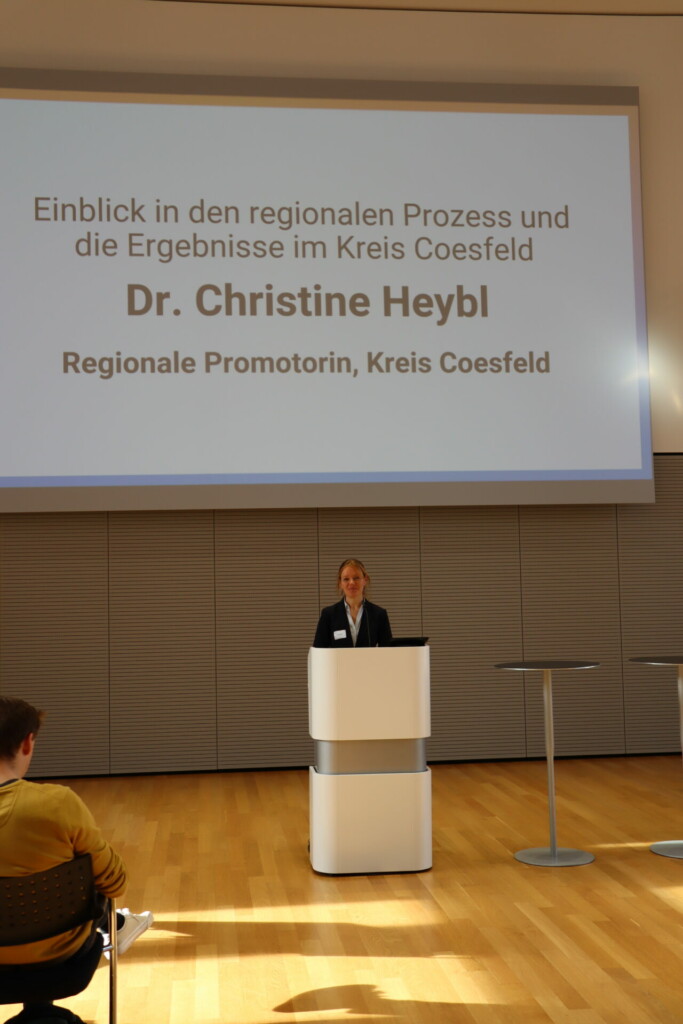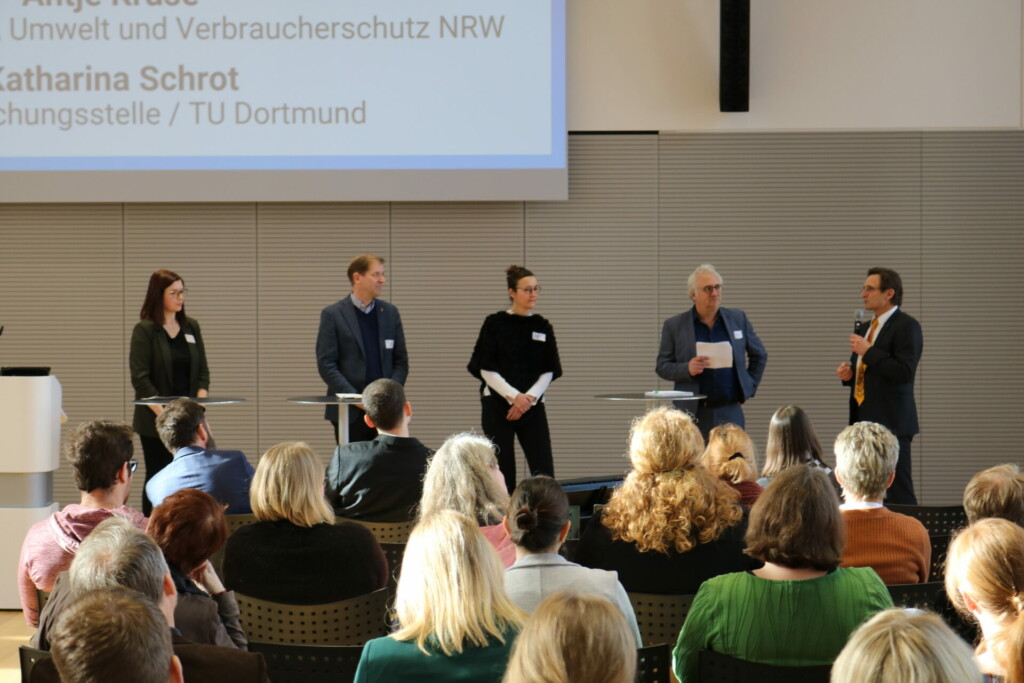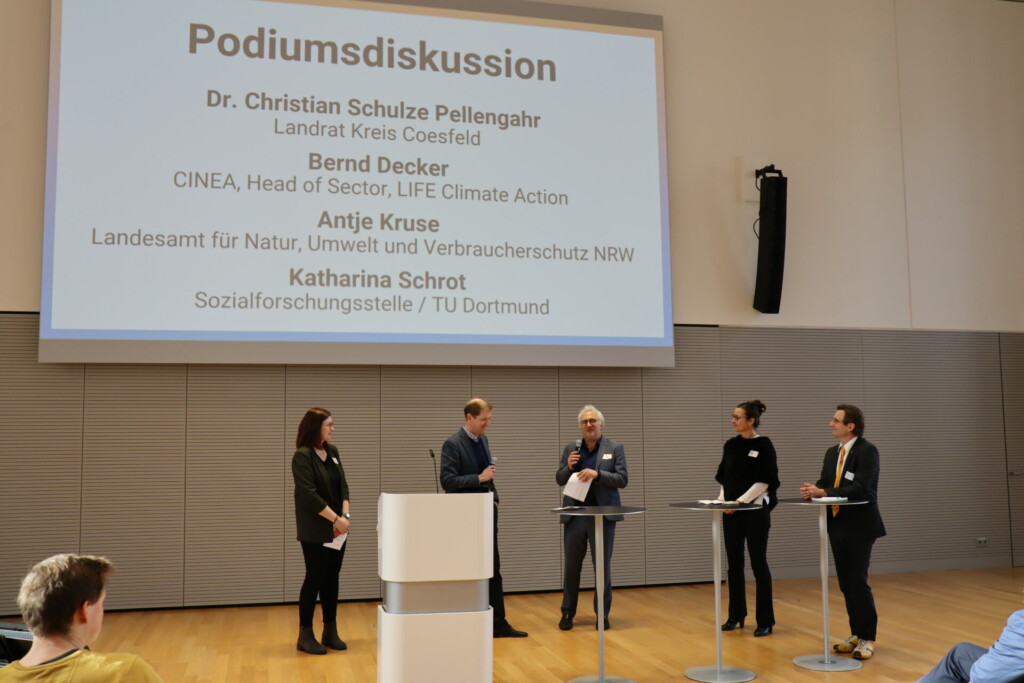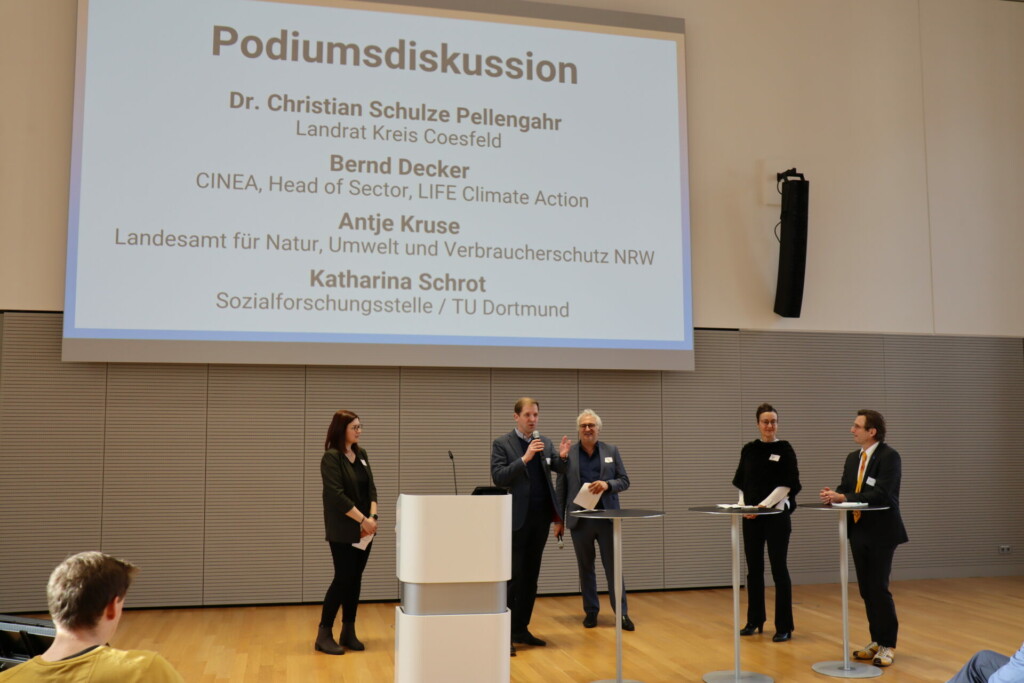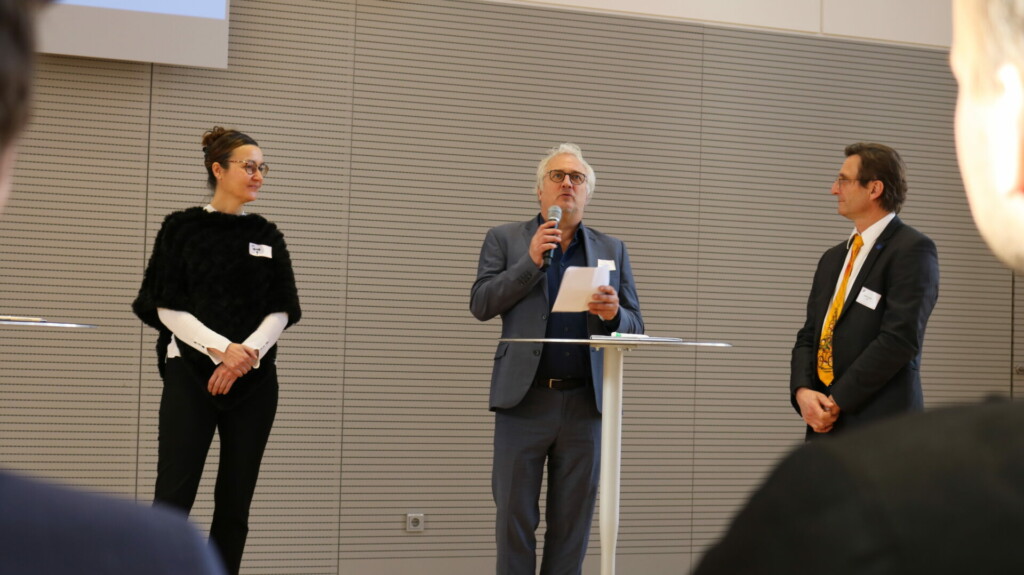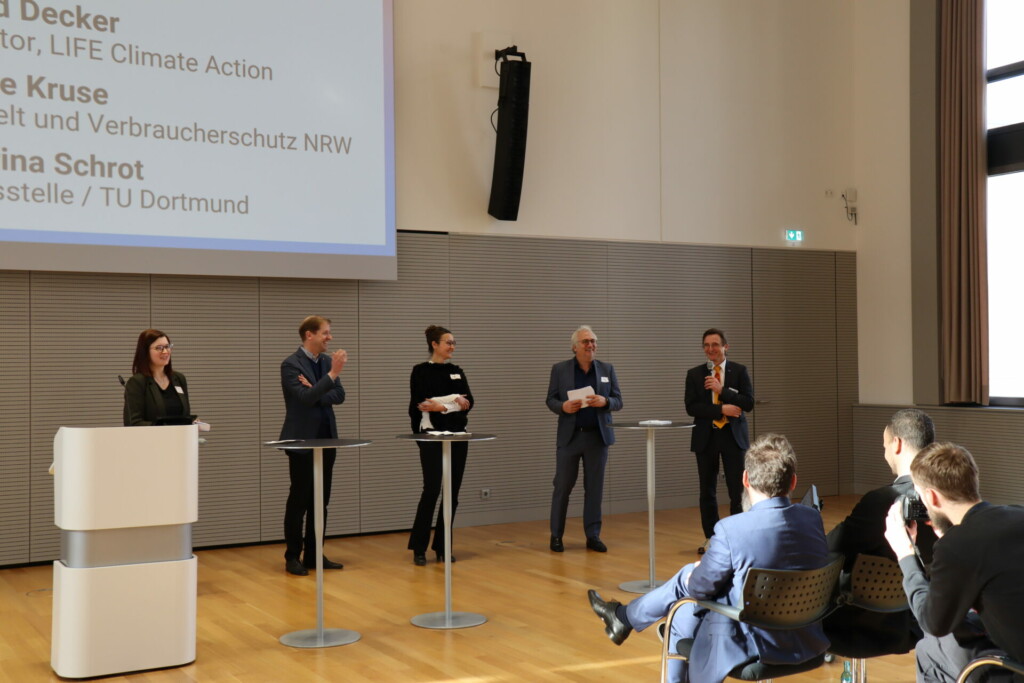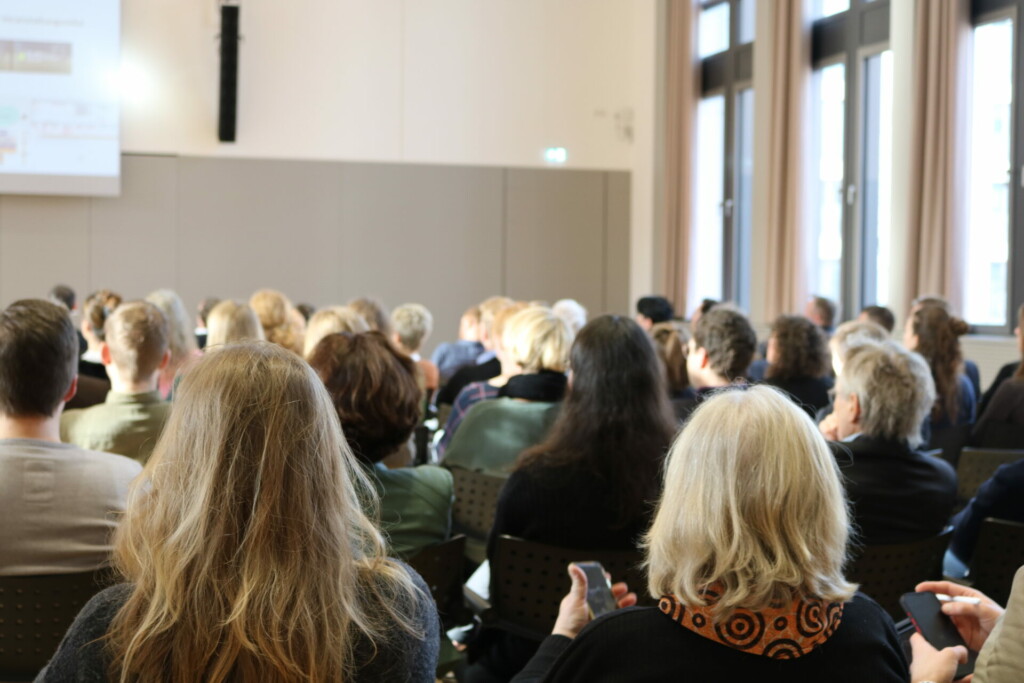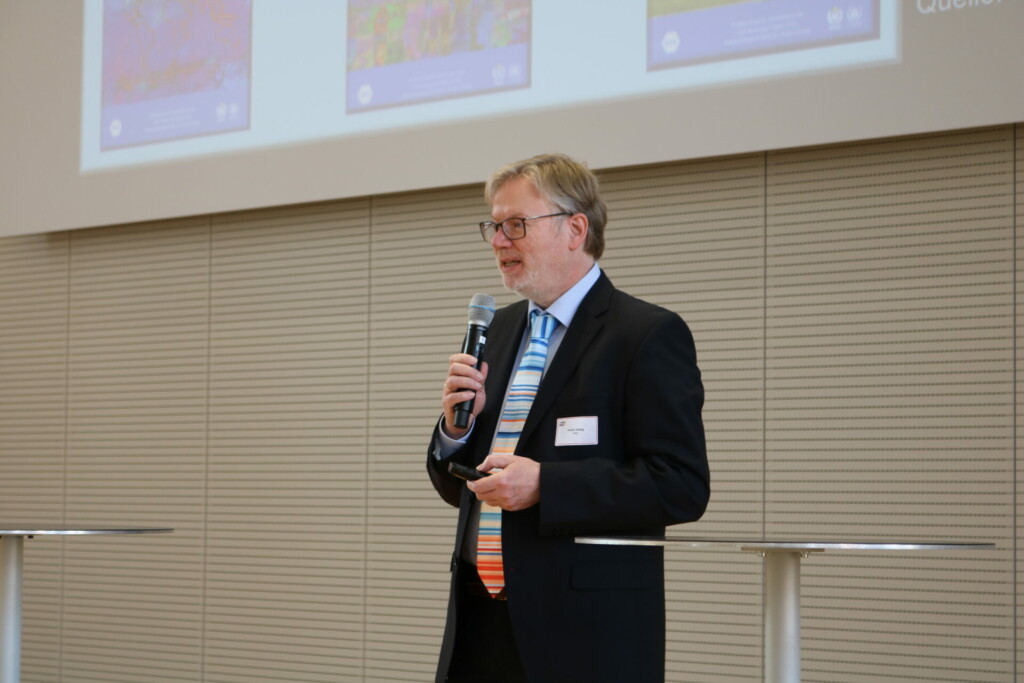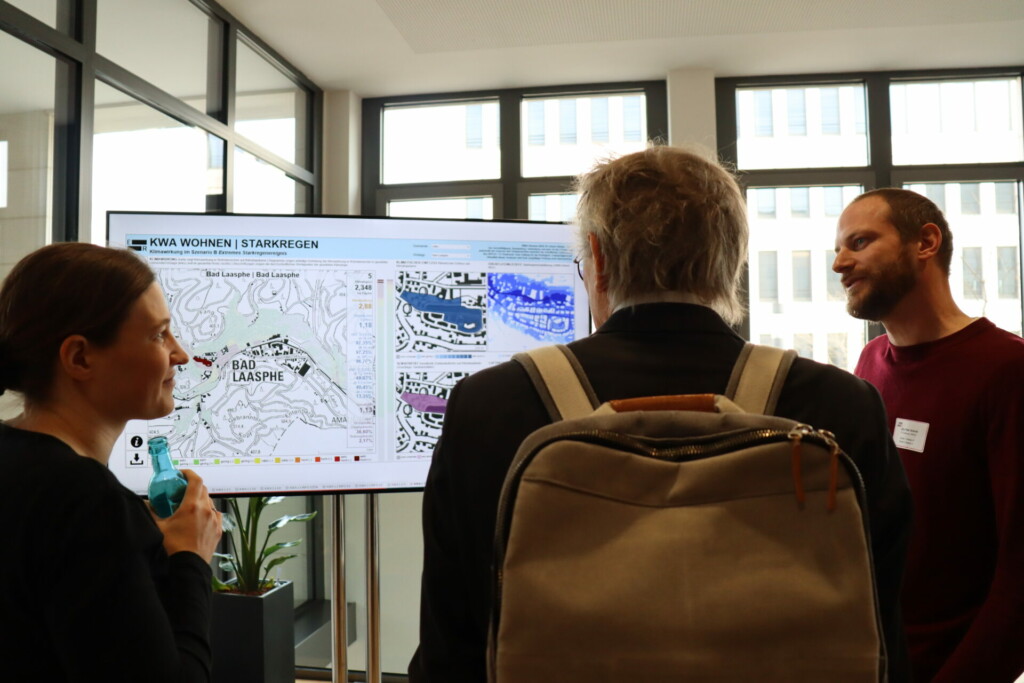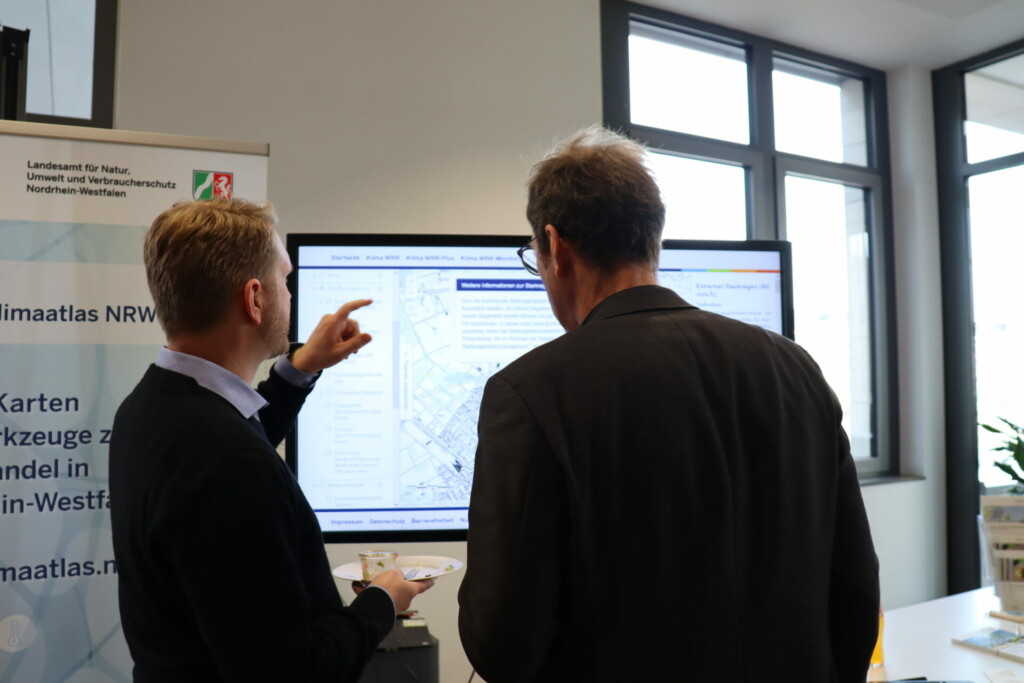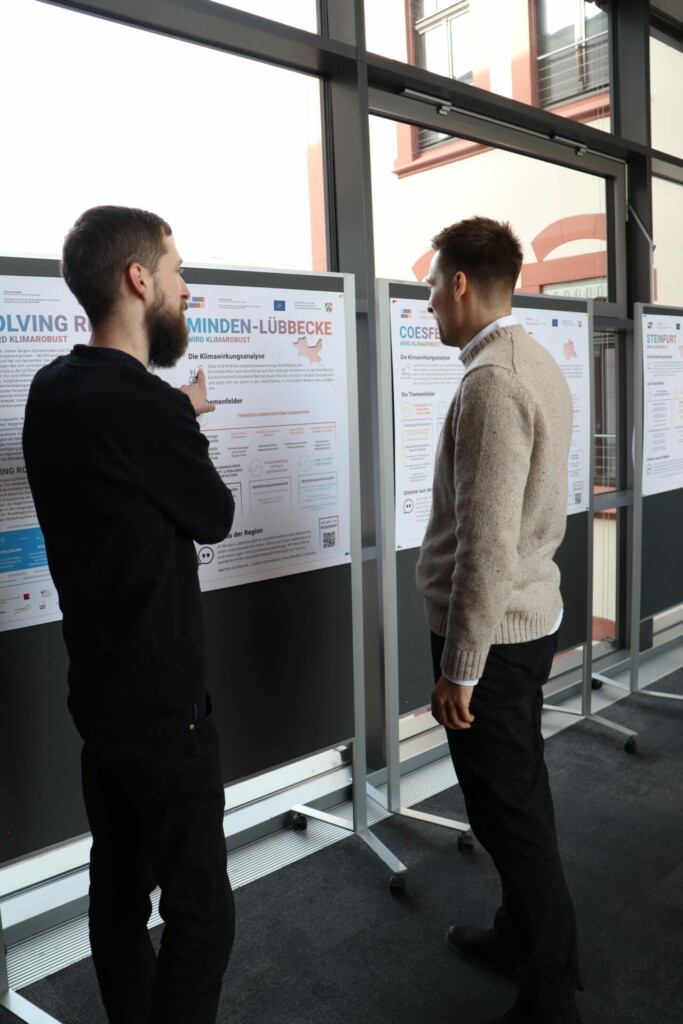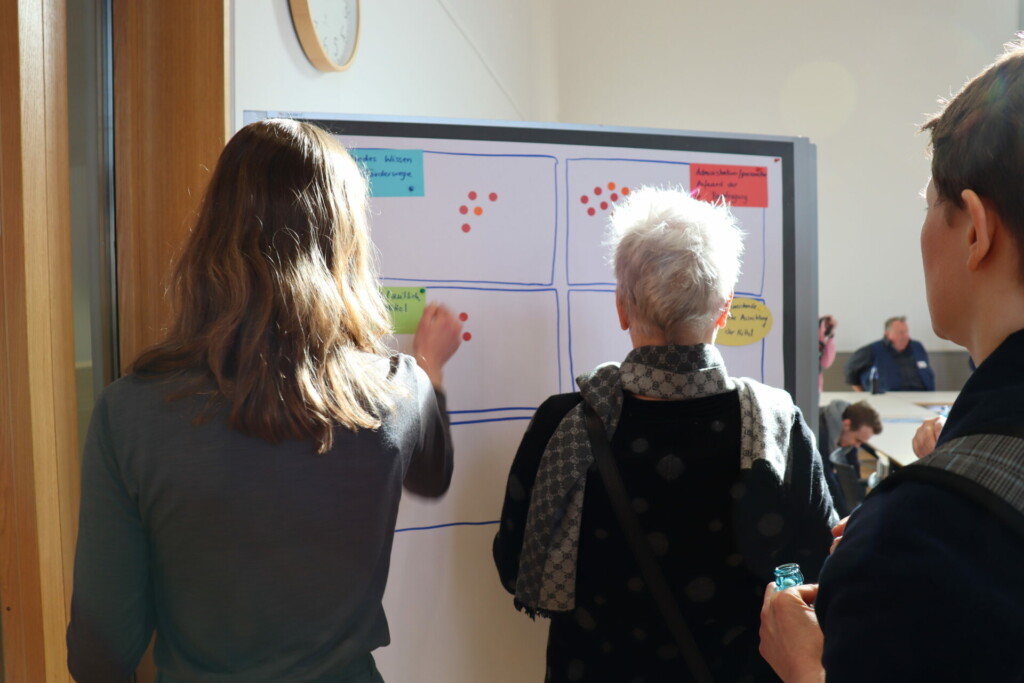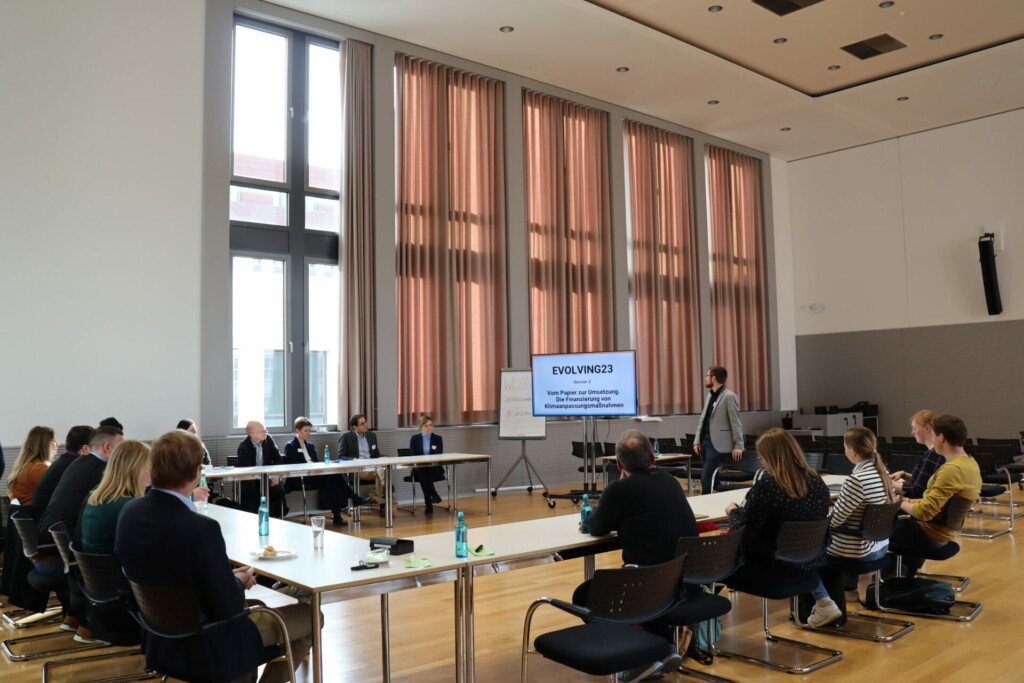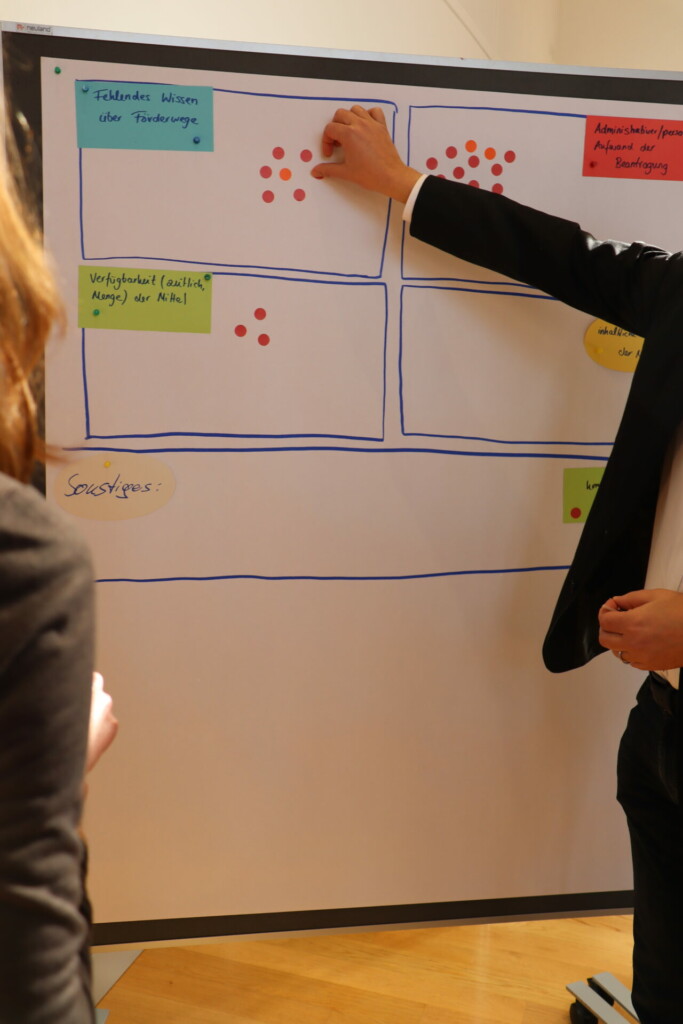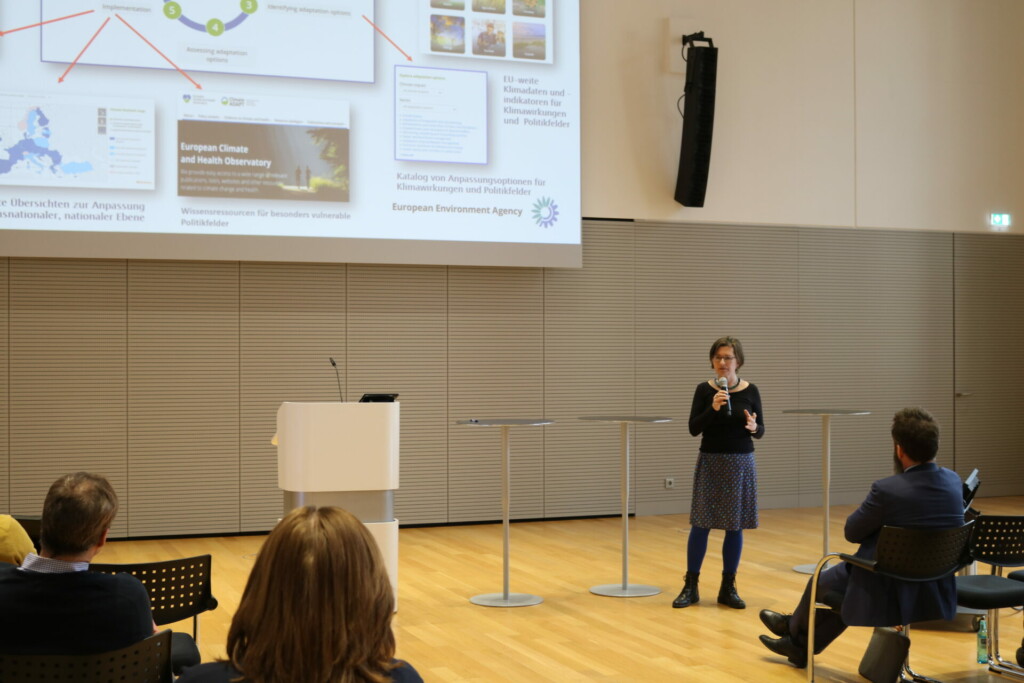On Thursday, 09 February 2023, the Evolving23 conference took place as part of the Evolving Regions project. In the Sparkassenakademie NRW directly at the Phönix-See in Dortmund, the participants were able to exchange ideas on topics of climate adaptation in rural areas. The approximately 90 participants were able to follow a varied program with impulses and a panel discussion in the morning and substantive discussions in five different content sessions in the afternoon. Under the title “Evolving23 – Climate adaptation in rural areas – Departure for implementation”, the focus was on challenges in the implementation of climate adaptation in rural areas.
Jürgen Schultze from the Social Research Centre in Dortmund moderated the day and welcomed NRW Environment Minister Oliver Krischer from the Ministry of the Environment, Nature Conservation and Transport on stage at the beginning of the event. In his presentation, Minister Krischer described the relevance of climate change adaptation and presented the ideas and plans of the state of NRW. In particular, he highlighted the Climate Adaptation Act as the first law on the subject at the state level. Against the background of the disasters in the summer of 2021, it is more important than ever to continue to promote climate adaptation. Events such as Evolving23 could also make a contribution to this:
“The events of recent years, such as the flood disaster in 2021 or last year’s heat and drought summer, have shown us all the dramatic effects of the climate crisis in our own country. Not only urban centres were affected, but also rural areas. With the ‘Evolving Regions’ project, the state of North Rhine-Westphalia is supporting seven districts in their efforts to increase climate resilience. I am very pleased to see how successfully the project has been carried out and how committed the participating regions are in initiating and implementing adaptation processes. Events such as the final conference ‘Evolving23’, in which experts and people from the regions meet, are also important for exchange and mutual learning.”
Oliver Krischer – Minister for the Environment, Nature Conservation and Transport (MUNV)
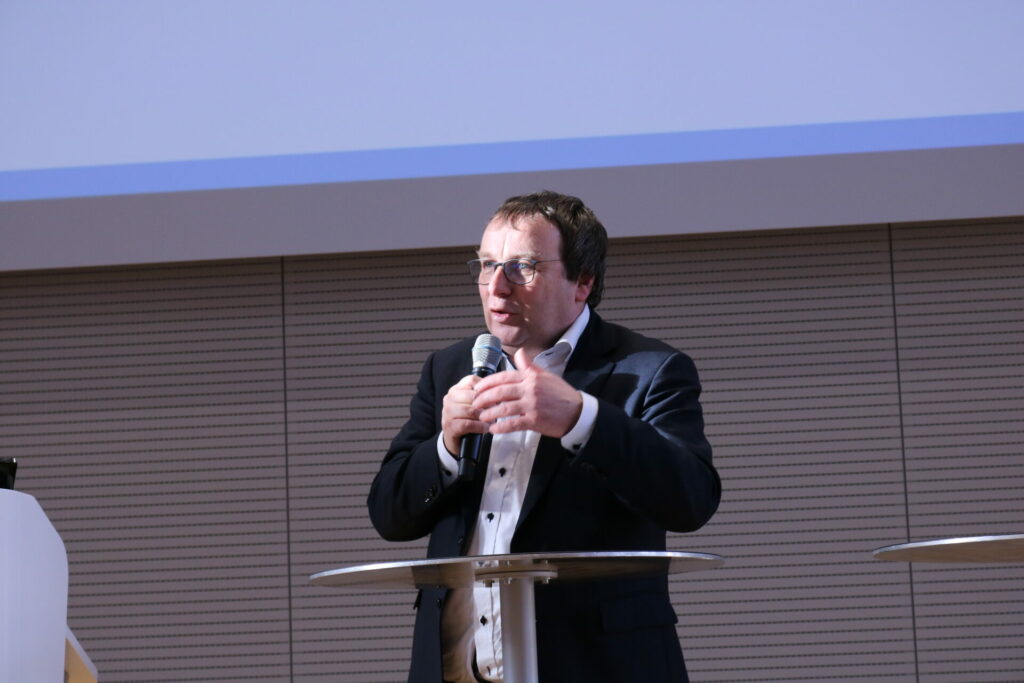
After Minister Kirscher’s impulse, Bernd Decker from the LIFE funding programme and CINEA (European Climate Infrastructure and Environment Executive Agency) brought the European level into the discussion on climate adaptation. Subsequently, Katharina Schrot from the Social Research Centre presented the project Evolving Regions, before Dr. Christine Heybl presented the results of the project in the district of Coesfeld and Dr. Ingo Möller the results of Evolving Regions in the district of Lippe.
In the subsequent panel discussion, the participants focused on climate adaptation in rural regions, the possible ways to implement adaptation strategies and future tasks and challenges. Also present were District Administrator Dr. Christian Schulze Pellengahr from the district of Coesfeld, Bernd Decker from CINEA, Antje Kruse from LANUV NRW and Katharina Schrot from the Sozialfroschungsstelle Dortmund.
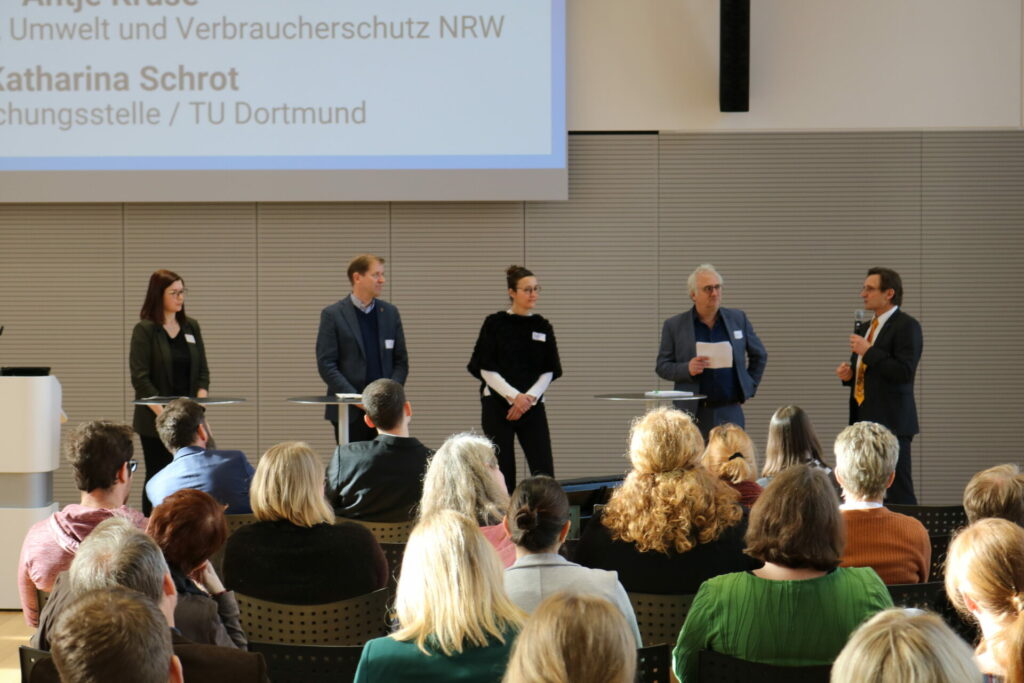
After this exciting discussion, Guido Halbig from the German Weather Service classified the results of the panel discussion and the project Evolving Regions against the background of the work of the Intergovernmental Panel on Climate Change (IPCC).
In the second part of the day, the participants had the opportunity to exchange ideas on various topics in smaller discussion rounds, which were enriched with content by experts.
In two rounds, the participants had time to participate in one of the following sessions:
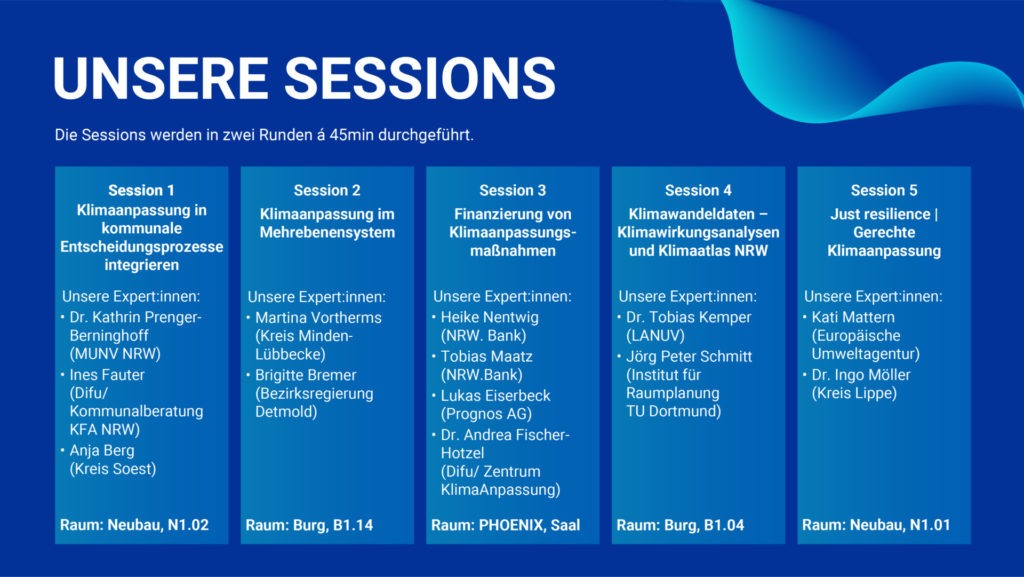
Following the sessions, Jürgen Schultze from the Social Research Centre of the TU Dortmund University summarized the results of the sessions and led to the input of Kati Mattern from the European Environment Agency (EEA). Ms. Mattern integrated the results of Evolving Regions and the event into the European Adaptation Strategy and the activities of the EEA.
We would like to thank all participants for their active participation in our conference Evolving23 and the exciting discussions. Special thanks go to the contributors who made the event possible in this form.
In the coming days we will publish a detailed documentation of the conference. Stay up to date on our website or on our Twitter channel .
 go to Overview
go to Overview 






